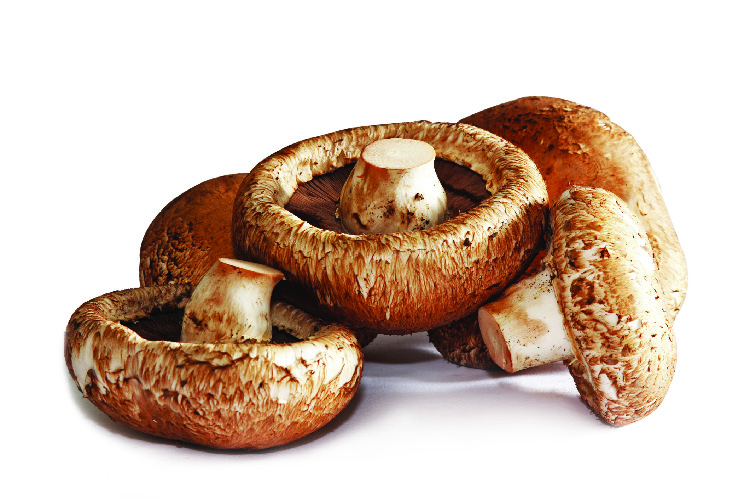Mushroom
Mushrooms have been used for thousands of years both as food and for medicinal purposes. The Pharaohs prized mushrooms as a delicacy, and the Greeks believed that mushrooms provided strength for warriors in battle. The Romans regarded mushrooms as a gift from God and served them only on festive occasions, while the Chinese treasured them as a health food. Mushrooms are often classified as a vegetable or a herb, but they are actually fungi. While there are over 14,000 mushrooms, only about 3,000 are edible, about 700 have known medicinal properties, and fewer than one percent are recognised as poisonous. Whatever your favourite—crimini, enoki, oyster, portobello, shiitake or white button—all mushrooms are loaded with essential nutrients.
- Very effective in preventing cancer of breast and prostrate due to presence of Beta-Glucans and conjugated Linoleic Acid having anti carcinogenic effects
- An excellent source of potassium, a mineral that helps lower elevated blood pressure and reduces the risk of stroke. One medium portabella mushroom has even more potassium than a banana or a glass of orange juice.
- They are rich in calcium (good for bones) and iron (benefits in anemia)
- Has lean proteins as they have zero cholesterol, fats and very low carbohydrates
- Contains loads of vitamin B2 (riboflavin) and vitamin B3 (niacin)
- Mushrooms are hearty and filling. Research suggests increasing intake of mushrooms, in place of e.g. lean ground beef, can be an effective method for reducing daily energy and fat intake while still feeling full and satiated after the meal
- Rich in selenium. Selenium is an antioxidant that works with vitamin E to protect cells from the damaging effects of free radicals, and is good for health of bones, teeth, nails, hair). The best source of selenium is animal proteins. So, mushrooms can be the best choice for vegetarians to obtain selenium
- Shiitake mushrooms have been used for centuries by the Chinese and Japanese to treat colds and flu. Lentinan, a beta-glucan isolated from the fruiting body of shiitake mushrooms, appears to stimulate the immune system, help fight infection, and demonstrates anti-tumor activity
- Ergothioneine, a powerful anti-oxidant present in mushrooms is very effective in giving protection from free radicals as well as boosting up immunity
- Mushrooms are the only vegetable and the second known source (after cod liver oil) to contain vitamin-D in edible form
- One serving of mushrooms also provides about 20 to 40 percent of the daily value of copper, a mineral that has cardioprotective properties
- Mushrooms contain about 80 to 90 percent water, and are very low in calories (only 100 cal/oz). Hence, they are an ideal food for persons following a weight management program or a diet
- Can be an ideal low energy diet for diabetics. They have no fats, no cholesterol, very low carbohydrates, high proteins, vitamins and minerals, a lot of fibre. Moreover, they contain natural insulin and enzymes which help breaking down of sugar or starch of the food
- Mushrooms contain natural antibiotics (similar to penicillin, which itself is extracted from mushrooms) which inhibit microbial and other fungal infections
Warning!
Many types of mushrooms are not edible, are highly poisonous and look strikingly similar to their edible counterparts. Even certain edible mushrooms can go poisonous depending upon the substance they grow on. Don’t ever try picking them up from woods unless you identify them very well. Do not trust unknown vendors too.
















